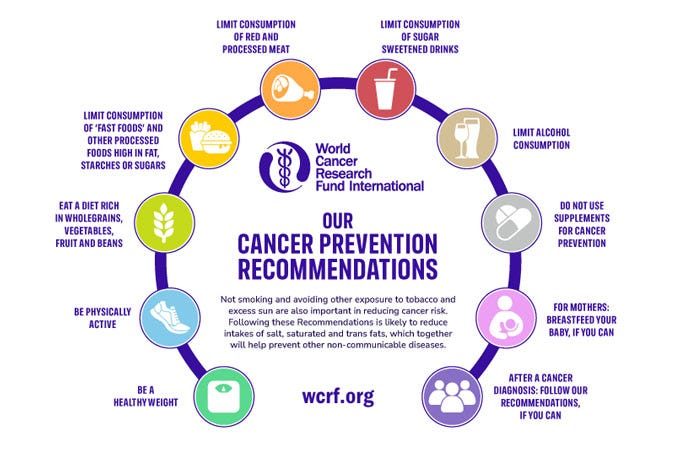Five to Thrive
A Compilation of Ideas, Products and Services Supporting Wellness of People and Planet
Special Edition: A few weeks ago I traveled to Washington D.C. to attend the International Conference on Nutrition in Medicine presented by The Physicians Committee for Responsible Medicine. Here are some of my key takeaways in regards to common health concerns.
#1 Cholesterol
If you are interested in lowering or maintaining your cholesterol level, choose an apple over a bag of chips. Decreasing the consumption of processed foods and eating more whole foods supports your healthy gut bacteria. Some of that healthier bacteria has the ability to chew up dietary cholesterol and change it into coprostanol, which is a less absorbable lipid and therefore less likely to get into your bloodstream. So, habitually eating an apple rather than a bag of chips can mean more of your dietary cholesterol ends up in your toilet and NOT in your arteries!
#2 Cancer
Ever wonder what to eat or not eat in order to decrease cancer risk? Check out the dietary and lifestyle suggestions from the World Cancer Research Fund.
And…
Studies show that people who have a high genetic risk of cancer benefit even more from lifestyle modification than those with a low risk.
If you have a cancer diagnosis, a whole food plant based diet that is high in fiber can help up-regulate your immune system, which means more support in your fight against the disease.
#3 Supplements
With an abundance of social media advice in the form of information and mis-information, how can we be sure that the supplements we are taking are helpful and not harmful. Here are Dr. Gemma Newman’s guidelines for making a SMART choice.
S - Science - is there quality evidence to support the effectiveness of the supplement. Check with the NIH website, and look for third party testing.
M - Mechanism - is there a credible biological process as a result of taking this supplement?
A - Aim - are you correcting a known deficiency, treating a disease or trying to improve your chances for longevity?
R - Risk - do the benefits outweigh the risks? Are you aware of any interactions between this supplement and medications you are already taking or foods you regularly consume?
T - Tracking - are you tracking the effectiveness of the supplement with a blood test, or perhaps journaling to keep an eye on your functional status or overall quality of life?
#4 Skin Health
So what should one eat if they want to age “glowingly?” Well according to Dr. Jessica Krant, MD, MPH, FAAD, DipABLM, there are three parts to an anti-aging diet.
Decrease wrinkles and brown spots by eating antioxidant rich foods including those containing vitamins C, E, selenium, beta-carotene and lycopene. Use plenty of herbs and spices, drink some green tea and enjoy dark chocolate that is low in sugar and high in cacao.
Avoid foods that cause AGE to build up in your skin. AGE or Advanced Glycation End products cause damage to skin collagen resulting in less elasticity and more wrinkles. This process is increased by eating foods high in processed sugar, processed flour, meat, and animal fats.
Fight chronic inflammation which causes skin to “inflamm-age.” Use spices such as turmeric, clove, ginger, consume some onion and garlic, eat a diet rich in fiber and be sure to get enough vitamin D, omega-3 fatty acids and magnesium.
Want to know more? Enjoy this podcast linked here!
#5 Ultra Processed Foods
Ultra processed food is a hot topic right now. The exact definition is still up for debate. But most agree that ultra processed foods are manufactured products that contain ingredients not commonly found in your kitchen. And most would agree that ultra processed foods though delicious, have been stripped of the nutritional value of their whole food origin. Examples would be a carrot being ultra processed into a carrot cake, or an apple ultra processed into apple flavored cereal.
So is it possible for an ultra processed food to be healthier than its unprocessed counterpart? Consider plant based meat products.
A popular meatless burger, which is ultra processed, has slightly less saturated fat but more sodium than a beef burger. However, the plant based option has no cholesterol, no added antibiotics or hormones and is arguably a more sustainable choice for the planet. So in this case, is a plant based burger, which is ultra processed, a healthier choice than an unprocessed beef burger?
Want to know more about this conference or the amazing organization that is the Physicians Committee for Responsible Medicine? Follow this link…
Thanks for reading my Substack. I am a certified Wellness Coach who offers personal coaching sessions. If you would like some support on your wellness journey, contact me at kridge2014@gmail.com.



